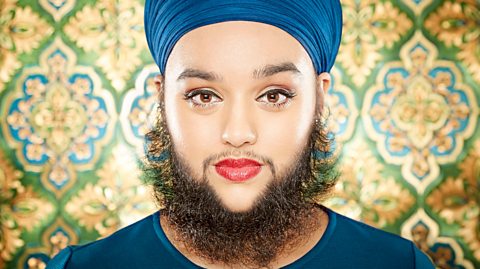This article was first published in November 2019.
The internet has given us many wonderful things: instant messaging, movies on demand, online gaming, BBC Bitesize…
But the internet has also brought new ways of communicating negatively that weren’t possible when memes were delivered by carrier pigeon.
We’re talking internet trolls.
In children's stories a troll is an angry, anti-social monster hiding under bridges ready to snatch up goats called Billy. Instead of under bridges, internet trolls hide behind their computers or phones, and go out of their way to cause misery online.
BBC Bitesize spoke to three influencers about their experience of trolling, how it made them feel and what they did about it.
WATCH: Olivia Callaghan, Fatima Timbo and Rosie Williams talk about their experiences of trolling, how it affected their mental health and how they utilise the positives of social media
Trolls are people who leave intentionally provocative or offensive messages on the internet in order to get attention, cause trouble or upset someone.
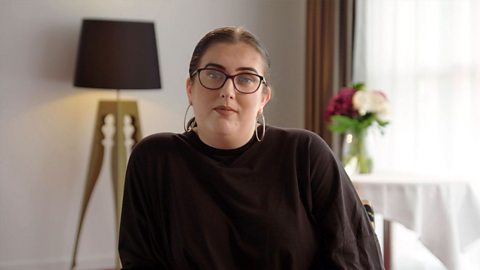
Liv
Liv, a mental health and self-love advocate, experienced trolling when she gained more followers.
She told us she receives comments like ‘”fat”, “disgusting” and “vile”.
“A troll is someone who comments negatively on a personal part of yourself,” she said.

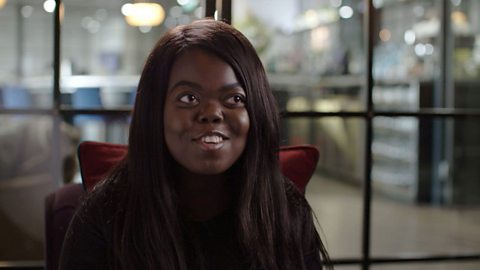
Fatima
Fatima, a dancer and model, knows when she puts out certain posts she will get “particular hate”.
She said when she posted a video of herself dancing on holiday she received a lot of love but also a lot of hateful messages.


Rosie
Rosie, a former Love Island contestant, did some filming with Bitesize about gaslighting and when the video was released she received some nasty comments about her appearance.
“I think everyone experiences some sort of online trolling and bullying,” said Rosie.

What types of trolls are there?
Imran Ahmed, CEO of the Centre for Countering Digital Hate (CCDH), an NGO that has produced a practical guide for public figures dealing with trolls called Don’t Feed the Trolls, said there are two main types of troll.
The first type of troll targets public figures with large social media followings in the hope that they respond.
The trolls then have their hateful messages re-broadcast to a wider audience when the target of their trolling, or their followers, respond.
The other type of trolls are people who exhibit a psychological trait known as 'negative social potency' - this means they enjoy causing harm to others:
“These trolls get pleasure from upsetting those they target with abuse, so if their victim responds it only encourages them to continue,” said Imran.
Why do people troll?
There are many reasons why people might troll online, and it’s different from one troll to the next.
Dr Mark Griffiths, Professor of Behavioural Addiction at Nottingham Trent University said: “Most people troll others for either revenge, for attention seeking, for boredom, and for personal amusement.”
“They want to lash out at people who are being successful, who are happy, who are enjoying their life because they can’t,” said Liv.
“I think people troll because they’re insecure in themselves, they want to get a kick out of being negative towards someone else,” said Fatima.
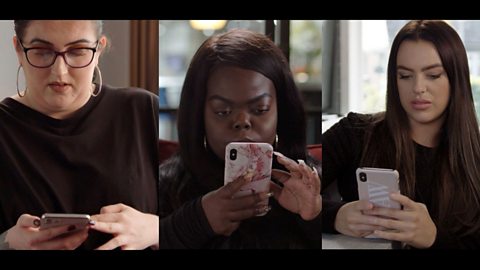
How does trolling affect people?
It might seem like there are no consequences due to the anonymity that the internet can provide, but there are consequences for the person you are targeting, and for yourself.
It can cause heightened levels of anxiety and lower self-esteem for the victim.
“Trolling hurts people, it affects people’s mental health,” said Fatima.
Rosie and Liv both described how trolls made them question aspects of their appearance that they never had a problem with before.
“They can highlight insecurities you already have and create new ones,” said Liv.
“I’ve never had a problem with myself before, I’ve never thought I had a big nose or a big forehead, so why should I let these people change the way I feel about myself now?” said Rosie.
Is trolling the same as cyber-bullying?
Cyber-bullying is the bullying of another person using the internet, mobile phones and other digital devices. Cyber-bullying can take the form of posts on forums or social media, text messages or emails, all with the aim of hurting the victim.
Dr Griffiths sees trolling as a form of cyber-bullying.
According to Imran, “trolling is generally about provoking a reaction, whether that’s because trolls enjoy seeing people hurt or because they want to be amplified.”

What should you do if you’re being trolled?
We asked CCDH for some advice on what to do if you are being trolled:
- Don’t respond
- Block the trolls’ accounts
- Don’t post online that you’re being targeted
- Take some time out from social media
- If the abuse you receive makes you feel at threat or is otherwise unlawful - report it to the social media platform and the police.
Can anyone be tempted to troll?
You might be tempted to troll. You might see something or someone online that you don’t like and be tempted to send an unkind message.
Rosie’s advice to stop yourself becoming a troll is to put yourself in the person’s shoes and that’ll make you think twice about what you post.
Imran also warned that anonymity is not necessarily a protection:
“People have been excluded from school or university, lost their jobs, their friends, and even been jailed for sending abuse online. Not only is it a horrible thing to do, you are risking your own future by engaging in trolling,” he said.
What should you do if you realise you have trolled someone?
“If you have done it without knowing it or done it in the heat of the moment, as an act of revenge or retaliation, then you should apologise in writing as soon as possible. A written apology can go a long way,” said Dr Griffiths.

If you need support
You should always tell someone about the things you’re worried about. You can tell a friend, parent, guardian, teacher, or another trusted adult. If you're struggling with your mental health, going to your GP can be a good place to start to find help. Your GP can let you know what support is available to you, suggest different types of treatment and offer regular check-ups to see how you’re doing.
If you’re in need of in-the-moment support you can contact Childline, where you can speak to a counsellor. Their lines are open 24 hours a day, 7 days a week.
There are more links to helpful organisations on BBC Action Line.

How to deal with racist bullying at school
Alex Holmes talks about his experiences of being racially bullied in school and what you can do if you are experiencing racism.
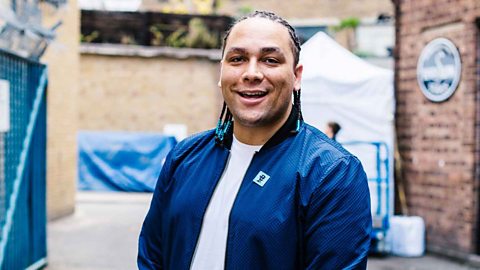
How to deal with cyber-bullying
Online bullying can be extremely distressing. Check out these tips for how to deal with cyber-bullies.
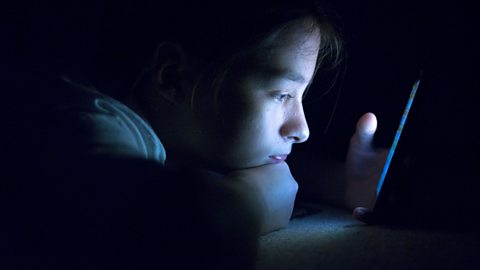
How I beat my bullies, by Harnaam Kaur
Harnaam Kaur on how building a relationship with herself was the key to beating her bullies.
